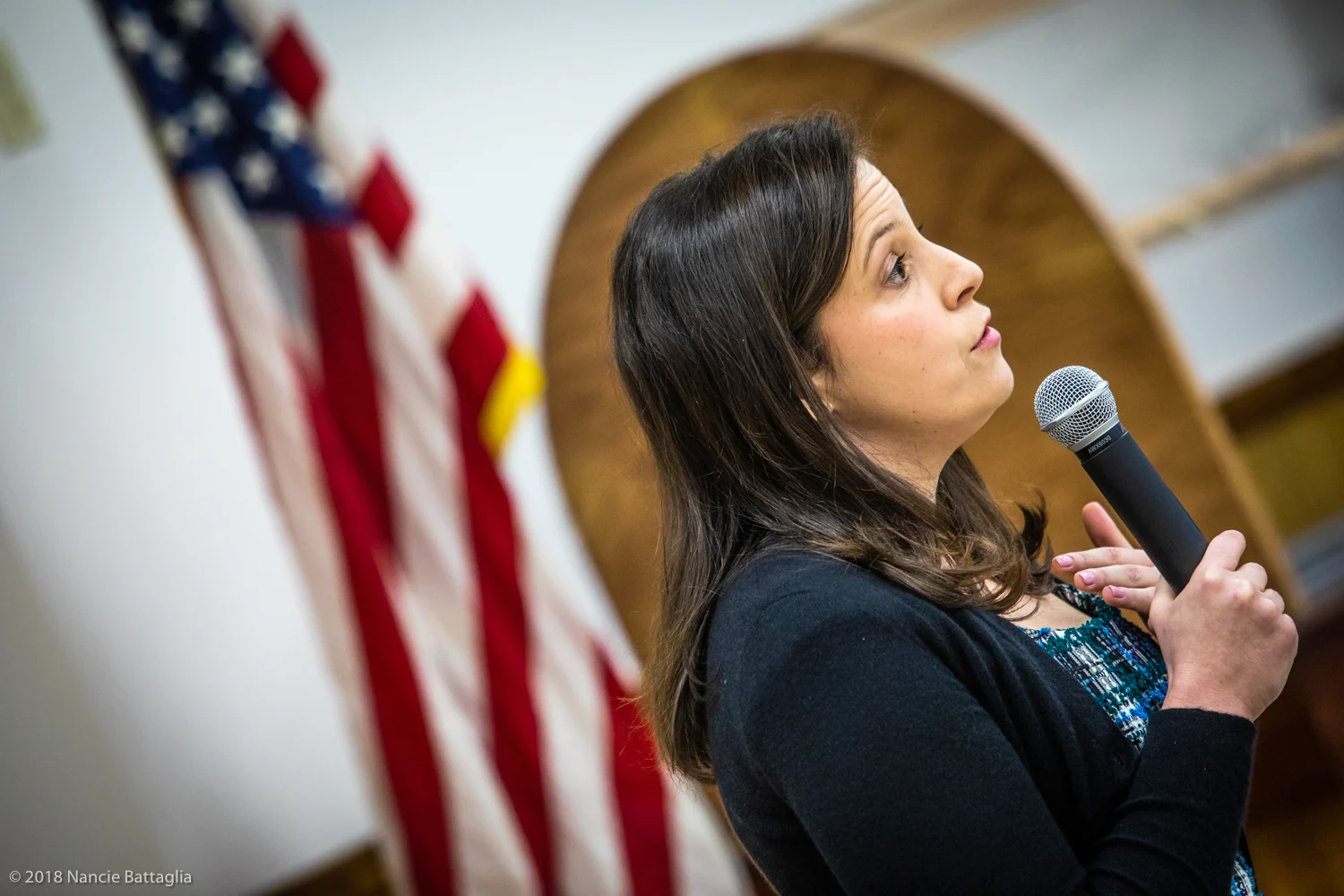In a significant development that could reshape the United States’ diplomatic presence on the global stage, former President Donald Trump is reportedly considering Congresswoman Elise Stefanik for the role of U.S. Ambassador to the United Nations. This potential appointment comes as Trump continues to weigh his influence in the Republican Party and his potential bid for the presidency in 2024. Stefanik, known for her staunch support of Trump and conservative policies, could bring a fresh perspective to America’s diplomatic efforts.
Stefanik, currently serving as the Representative for New York’s 21st congressional district, has been a rising star within the Republican Party. Since her election in 2014, she has built a reputation as a formidable advocate for conservative values, often aligning herself with Trump’s America First agenda. Her potential appointment to the U.N. could signal a continuation of these policies on an international scale.
The role of U.S. Ambassador to the United Nations is critical in shaping America’s foreign policy and its interactions with other nations. If Stefanik is appointed, she would be tasked with advancing U.S. interests at the U.N., promoting peace and security, and addressing global challenges such as climate change and human rights. Her conservative stance suggests she would approach these issues with a focus on national sovereignty and economic interests.
Critics of Stefanik’s potential appointment might argue that her limited experience in international diplomacy could be a drawback. However, supporters contend that her leadership skills and ability to navigate complex political landscapes make her a strong candidate. As a key figure in the Republican Party, she has demonstrated her capacity to build coalitions and advocate for policies that resonate with a broad base of Americans.
Trump’s consideration of Stefanik underscores his continued influence over the Republican Party and his determination to shape its future. Since leaving office, Trump has remained a central figure in GOP politics, endorsing candidates and influencing party dynamics. Appointing Stefanik to a high-profile diplomatic role would further cement his legacy and reinforce his political ideology on the world stage.
If Stefanik is appointed, she would follow in the footsteps of former U.N. Ambassadors like Nikki Haley, who also had strong conservative credentials. Haley’s tenure was marked by assertive diplomacy and a focus on reforming the U.N. to better reflect U.S. interests. Stefanik’s approach could mirror these priorities, emphasizing accountability and efficiency within the international body.
The potential appointment comes at a time when the U.S. is navigating complex geopolitical challenges, including tensions with China and Russia. A conservative voice like Stefanik’s at the U.N. could advocate for a firm stance against authoritarian regimes and promote democratic values. Her experience in Congress, particularly on the House Armed Services Committee, could inform her approach to security issues.
Stefanik has been a vocal critic of the Biden administration’s foreign policy, often highlighting perceived weaknesses in its approach to international relations. Her appointment could provide an opportunity to advance alternative strategies that align with conservative principles. This includes prioritizing American energy independence and strengthening alliances with key partners like Israel.
In addition to her policy positions, Stefanik’s communication skills and media savvy could be assets in the role of U.N. Ambassador. She has demonstrated an ability to articulate complex issues clearly and effectively, a crucial skill in the diplomatic arena. Her presence at the U.N. could help convey U.S. positions with clarity and conviction.
The consideration of Stefanik for this role also reflects broader trends within the Republican Party, where women are increasingly taking on leadership positions. Her appointment would not only be a personal achievement but also a symbol of the party’s evolving dynamics. As a prominent female politician, Stefanik could inspire more women to pursue public service within the GOP.
While some might question the timing of such an appointment, given Trump’s potential presidential ambitions, others see it as a strategic move. By placing allies in key positions, Trump could strengthen his influence over U.S. policy and maintain a presence on the global stage. Stefanik’s appointment would align with this broader strategy.
The process of appointing a U.N. Ambassador involves confirmation by the Senate, where Stefanik would likely face rigorous scrutiny. However, her established relationships with key Republican senators could aid her confirmation process. The outcome of such hearings would be closely watched by both domestic and international observers.
If confirmed, Stefanik would face the immediate challenge of navigating complex international issues while representing conservative American values. Her effectiveness in the role would depend on her ability to balance national interests with the demands of multilateral diplomacy. Her success could set a precedent for future conservative appointments to international roles.
The potential appointment of Stefanik to the U.N. would also have implications for her congressional district, which she has represented since 2015. A vacancy would trigger a special election, potentially altering the political landscape in New York. Her constituents would undoubtedly watch developments closely, given her strong track record in advocating for their interests.


